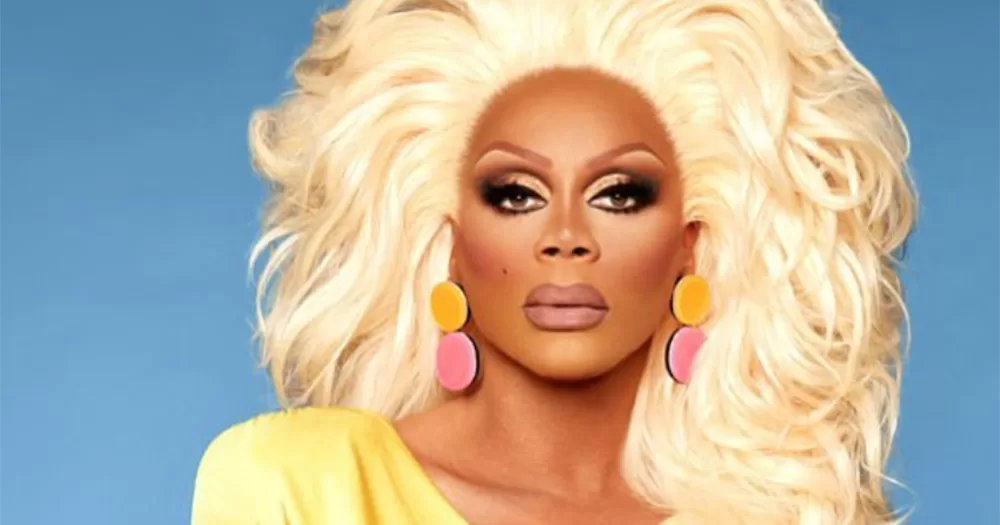Keeping up with the constant influx of new slang is a nearly impossible task, but it’s often even more difficult to trace where new slang terms and phrases find their origins in modern language. The LGBTQ+ community is notorious for their ability to turn and popularise a phrase, such as the moniker “Mother” – applied to a number of female pop culture icons over the years.
Whether they’re talking about icons of stage and screen like Catherine O’Hara and Sandra Bullock, or pop icons like Cher and Lady Gaga, many a gay has referred to their personal diva as “Mother” in recent years.
But where does this terminology come from? Obviously, the word “Mother” isn’t hard to trace, but LGBTQ+ fans are hardly suggesting that Lady Gaga is their, or anyone’s, biological mother!
In a recent interview with Gay Times editor, Sam Damshenas, Buffy the Vampire Slayer royalty Sarah Michelle Gellar asked for clarification on the phrase, saying: “Can someone please explain ‘Mother’ to me?”
Once hearing that the term was used by LGBTQ+ individuals to bestow honour on their favourite divas, Gellar later updated her Instagram bio to read simply: “Mother”. In a subsequent interview, Gellar commented on her mother-status, saying: “It’s a huge honour. This is a community that has supported me and all of the jobs I’ve done, whether they’ve been successful or not, and so I’m incredibly grateful.”
But is “Mother” just another passing fad? According to Paul Baker, a Professor of English Language at Lancaster University and the author of Fabulosa!: The Story of Polari, Britain’s Secret Gay Language, the answer is that the term “has been a key concept in gay communities for decades, if not centuries.”
In another interview with Gay Times, Baker described how Margaret Clap, a London woman who ran a ‘Molly House’ – an inn that primarily attracted homosexual men as clientele – was often referred to by her clients as “Mother Clap” as early as the 1700’s.
“She ran a coffee house that served as a base for men who had sex with men – or ‘mollies’ in 18th-century parlance,” said Baker. “She was affectionately known as Mother Clap by her patrons and even provided false testimony to get one of her lodgers acquitted of charges of sodomy.”
As a result of operating her then-illegal Molly Houses, Clap was later sentenced to two years imprisonment. While this was certainly unjust, it positioned Clap as a martyr for 18th century homosexual men living in London, only furthering her “Mother” status amongst them.
Today the title is given out more freely, to celebrities like Rihanna and Cate Blanchet after giving a particularly good performance in a film, or at the Super Bowl Half-Time Show.
According to Baker, however, the term has also been used, historically, as a sign of respect to elder queer men. “It’s especially applied to an older man who has seen everything and been through it all, and so subsequently has a lot of hard-won wisdom to impart and can provide emotional support to younger members [of the social group],” he added.
Historically, the terminology was particularly prevalent in New York City’s underground queer, Black, and Latinx Ballroom scene of the 1960’s onward. The competition culture saw Black and Latinx queer people, including trans women and drag performers, as they “walked” in different categories to win titles and prizes. Performers would walk with their ‘house,’ a sort of family of performers represented by their “Mother”.
A House Mother was most frequently an esteemed member of the community who steps in to take younger queer individuals under their wing. Contemporary uses of the term in pop culture in reference to icons like Beyonce and RuPaul stems directly from its use in NYC’s Ballroom scene.
Dr Jack Doyle, a departmental lecturer in LGBTQ+ History at the University of Oxford, confirmed the phrase’s roots in the Ball scene; “[the term] ‘Mother’ isn’t exclusive to Black American Ballroom scenes, but the way it’s used in those spaces says a lot about how queer people across cultures and times have built and named chosen families”.
He similarly points out that, in queer spaces, referring to an elder as “Mother” is not just a stand in for “mentor”. Often, Doyle suggests, the kind of “mothering” done by drag mothers is far more literal. Drag Mothers, Doyle argues, are “literally a parent to estranged queer kids,” often “providing housing, community, healthcare and safety.”
While the prominence of the supposedly LGBTQ+ founded terminology is a generally positive phenomenon, Doyle argues that the ‘trending’ nature of the phrase on platforms like Twitter/X could potentially be coming from a problematic place. “I think what we’re seeing with Mother’ blowing up Twitter is the latest in the age-old story of white gays borrowing (and misusing)” slang from queer communities of colour “which eventually jumps to straight people.”
“This process has changed and accelerated over the past decade with Black and Latinx American drag becoming commodified globally via Drag Race, which is how we get, say, white cis-het English women talking casually about ‘serving realness’ or ‘throwing shade’.”
That being said, Doyle does recognise that, most frequently, the term is being used as “a term of respect for powerful, confident femininity [and] this respect does sometimes extend to cis-het women who are also queer icons”.
© 2023 GCN (Gay Community News). All rights reserved.
Support GCN
GCN is a free, vital resource for Ireland’s LGBTQ+ community since 1988.
GCN is a trading name of National LGBT Federation CLG, a registered charity - Charity Number: 20034580.
GCN relies on the generous support of the community and allies to sustain the crucial work that we do. Producing GCN is costly, and, in an industry which has been hugely impacted by rising costs, we need your support to help sustain and grow this vital resource.
Supporting GCN for as little as €1.99 per month will help us continue our work as Ireland’s free, independent LGBTQ+ media.
